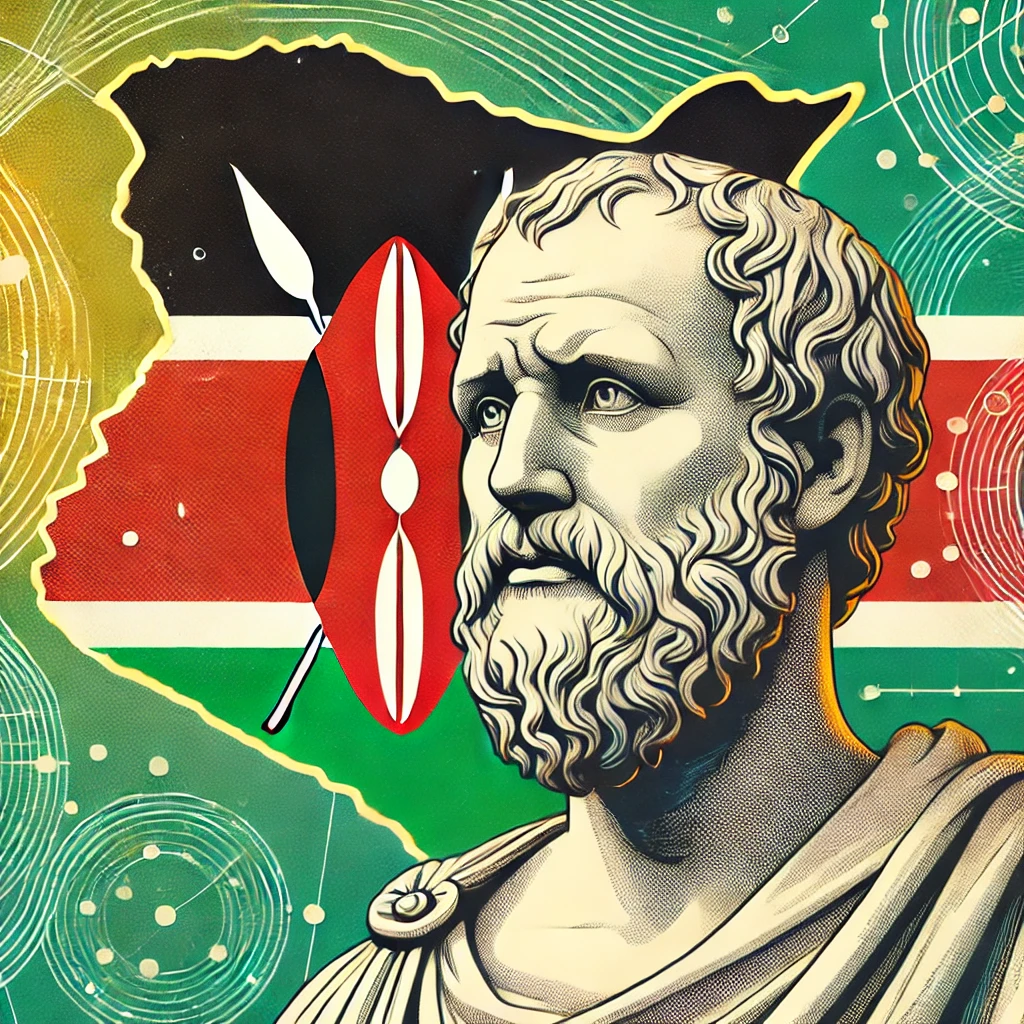
Throughout history, many have wondered why individuals who deeply understand justice and possess wisdom are often reluctant to assume leadership roles. Socrates, one of the greatest philosophers in Western thought, offers valuable insights into this paradox. For Kenya, a country that has long grappled with political challenges, this lesson is especially relevant as it seeks to nurture leaders who prioritize integrity and justice.
1. Focus on Truth, Not Power
Socrates believed that true philosophers are dedicated to the pursuit of truth and wisdom rather than seeking authority or power. This reluctance stems from their deep desire to focus on intellectual and moral growth. In Socratic thought, leadership often distracts philosophers from their true calling, pulling them into the complex and often murky waters of politics. For Kenya, this presents a challenge: how do we encourage those who seek truth—people with a strong moral compass—to become leaders when they are naturally inclined to avoid positions of power?
2. The Burden of Leadership
Leadership is a heavy burden, one that involves mediating between competing interests, desires, and expectations. According to Socrates, governing is frustrating for those who prioritize justice because they must navigate a system that often pits self-interest against the common good. In Kenya, this dilemma manifests in the struggle between serving public interests versus succumbing to corrupt systems. The weight of leadership, coupled with potential frustrations, often deters the best thinkers from stepping up.
3. Corruption of Power
One of Socrates’ greatest concerns is the corrupting nature of power. When individuals gain authority, they often find themselves seduced by the benefits that come with leadership—wealth, status, and influence. This leads to the abandonment of moral principles. Philosophers, aware of this danger, are hesitant to lead because they fear that power might corrupt them, drawing them away from their pursuit of truth. Kenya has witnessed numerous leaders who began with noble ideals but were eventually compromised by the corrupting influence of power.
4. Unwillingness to Rule for Personal Gain
For Socrates, the ideal ruler does not seek leadership for personal benefit. Instead, they view governance as a duty to society. Philosophers, by their nature, do not covet the trappings of leadership—money, fame, or prestige. This stands in stark contrast to many political figures who actively pursue leadership for personal gain. In Kenya, this is reflected in the challenges faced by leaders who are more interested in maintaining power than in serving the public. Encouraging leadership grounded in duty rather than ambition remains a central challenge.
5. Fear of Being Ruled by the Unwise
Socrates offers a compelling reason why good leaders must eventually accept their roles: if they do not step up, society will be ruled by those who are less wise, less just, and more selfish. This fear motivates reluctant leaders to take on the responsibility of governing, knowing that their refusal could result in incompetent or corrupt leadership. For Kenya, this means that if the best minds and moral leaders do not rise to the occasion, the nation risks being led by individuals who lack the wisdom or integrity necessary for good governance.
Applying Socratic Wisdom to Kenya
Kenya’s political history has seen instances where those with the greatest potential for leadership have shied away, leaving the field to individuals driven by ambition rather than a commitment to justice. Socrates’ insights are crucial for understanding this hesitation. The challenge for Kenya today is how to create an environment where individuals who prioritize truth and justice feel compelled to take on leadership roles—not for personal gain, but for the benefit of the society.
Some possible solutions include:
- Fostering Civic Education: By emphasizing the importance of leadership as a service to society, Kenya can encourage its best minds to view governance not as a pursuit of power but as a moral responsibility.
- Building Systems that Deter Corruption: If the systems of governance are transparent and less corruptible, those with integrity might be more willing to step into leadership roles, knowing they can operate without compromising their principles.
- Encouraging Philosophical Education: Embracing the teachings of thinkers like Socrates in education could help instill a sense of duty and moral responsibility in future leaders, helping them understand the balance between avoiding corruption and serving the public.
In conclusion, Socrates’ reluctance to embrace leadership provides a timeless lesson for Kenya as it seeks to empower wise, just, and dedicated leaders. Encouraging leadership based on principles rather than ambition could be key to a more just and prosperous future for the nation.

